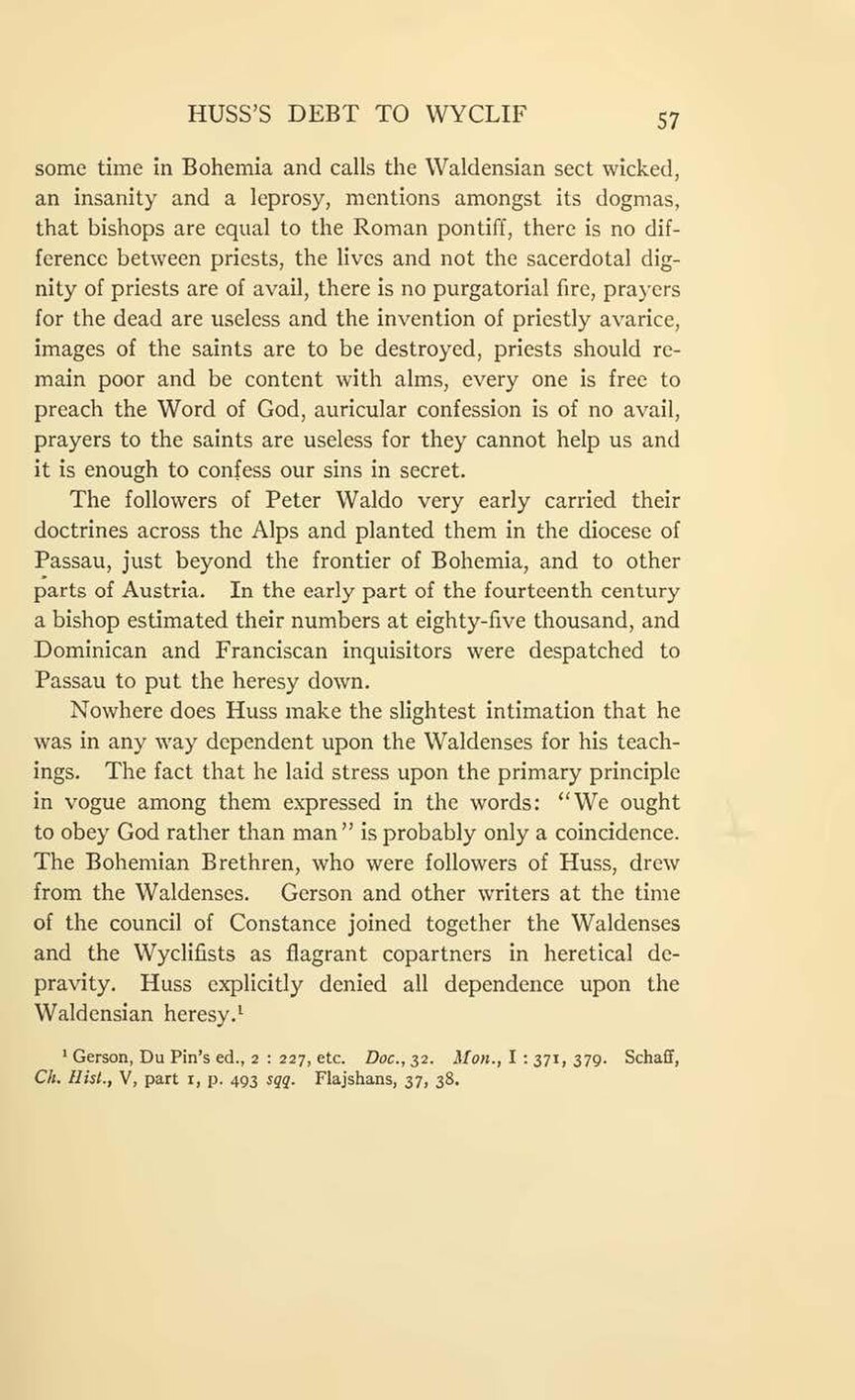some time in Bohemia and calls the Waldensian sect wicked, an insanity and a leprosy, mentions amongst its dogmas, that bishops are equal to the Roman pontiff, there is no difference between priests, the lives and not the sacerdotal dignity of priests are of avail, there is no purgatorial fire, prayers for the dead are useless and the invention of priestly avarice, images of the saints are to be destroyed, priests should remain poor and be content with alms, every one is free to preach the Word of God, auricular confession is of no avail, prayers to the saints are useless for they cannot help us and it is enough to confess our sins in secret.
The followers of Peter Waldo very early carried their doctrines across the Alps and planted them in the diocese of Passau, just beyond the frontier of Bohemia, and to other parts of Austria. In the early part of the fourteenth century a bishop estimated their numbers at eighty-five thousand, and Dominican and Franciscan inquisitors were despatched to Passau to put the heresy down.
Nowhere does Huss make the slightest intimation that he was in any way dependent upon the Waldenses for his teachings. The fact that he laid stress upon the primary principle in vogue among them expressed in the words: “We ought to obey God rather than man” is probably only a coincidence. The Bohemian Brethren, who were followers of Huss, drew from the Waldenses. Gerson and other writers at the time of the council of Constance joined together the Waldenses and the Wyclifists as flagrant copartners in heretical depravity. Huss explicitly denied all dependence upon the Waldensian heresy.[1]
- ↑ Gerson, Du Pin’s ed., 2: 227, etc. Doc., 32. Mon., I: 371, 379. Schaff, Ch. Hist., V, part 1, p. 493 sqq. Flajshans, 37, 38.
